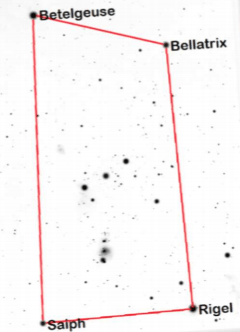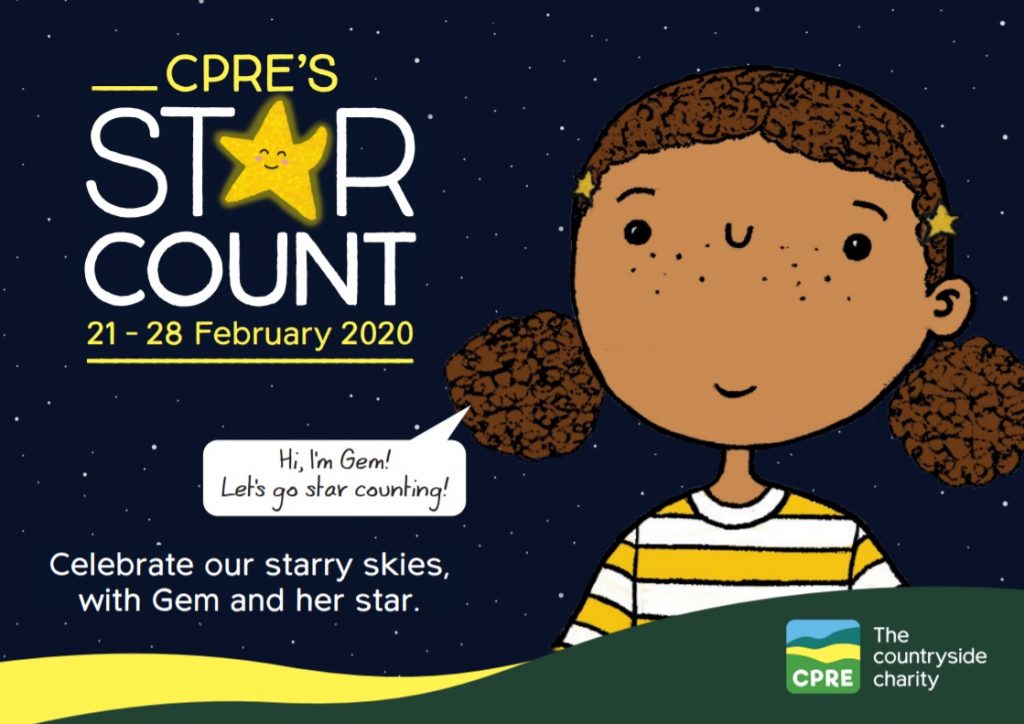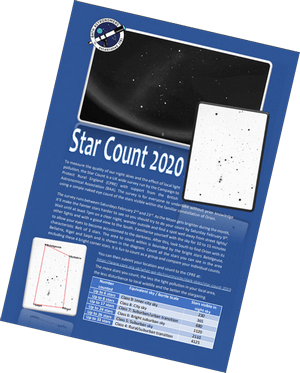Are you going to get involved in Star Count 2020? It is the Campaign to Protect Rural England (CPRE) national census of the sky darkness. It ran last year after a gap of a few years and had an amazing response.
The Survey is open to all and runs between 21st and 28th February 2020. Fingers crossed for a few clear nights.
By counting the stars you see within the bounds of the 4 clear outer stars of the constellation of Orion and supplying your location, you enable a revised light pollution map of the UK to be drawn up.

You don’t count the four bounding stars to come up with your number. You can work out the local light pollution on the Bortle scale:
| Up to 6 stars | Class 9: Inner-city sky |
| Up to 8 stars | Class 8: City sky |
| Up to 17 stars | Class 7:Suburban/urban transition |
| Up to 24 stars | Class 6: Bright suburban sky |
| Up to 26 stars | Class 5: Suburban sky |
| Up to 33 stars | Class 4: Rural/suburban transition |
| Up to 49 stars | Class 3: Rural Sky |
We’ve prepared a few items to help publicise and take part in the survey:
- Promotional poster A4
- Worksheet to draw the stars you see A4 (colour)
- Worksheet to draw the stars you see A4 (black and white)
The CPRE have created this great guide involving Gem so that all the family can enjoy the Star Count.

For more information visit:
https://www.cpre.org.uk/what-we-care-about/nature-and-landscapes/dark-skies/
Register your interest with the CPRE at:
https://takeaction.cpre.org.uk/page/48309/data/1
The CPRE will open their online submission page from 21st February and when they do, we’ll put a link here.
The event hopes to gather data on the current light pollution levels in the UK and also raise local awareness of the problems of bad lighting – impact on wildlife and human health, waste of energy, its false sense of security and, for us and our children, the loss of one of the most beautiful aspects of nature and our world.
The results collated by CPRE for 2019 are available to zoom into to see prior counts in your area.

